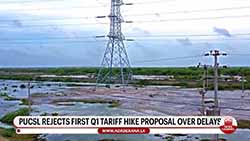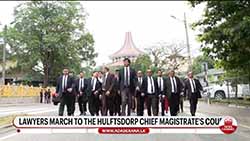The man who helped blow up the Bamiyan Buddhas
March 15, 2015 11:56 am
Mirza Hussain was 26 when Taliban commanders ordered him to plant explosives on the famous Buddha statues in his home province, Bamiyan.
The ancient sandstone carvings, once the world’s tallest Buddhas, were annihilated in an act of destruction that shocked the world, and helped set a precedent for the recent vandalism of Iraqi heritage sites by Islamic State fighters.
A lot has happened in Afghanistan in the 14 years since the Buddhas were destroyed, but for Mirza Hussain the memory is still vivid.
“First they fired at the Buddhas with tanks and artillery shells,” he says. “But when that was ineffective, they planted explosives to try to destroy them.”
At this point, he says, he was drafted in along with other local men being held by the Taliban.
Hussain, like most people in Bamiyan city, is a Shia Muslim and therefore was regarded as an enemy - or even an infidel - by the Sunni Taliban.
They took control of the mountainous province in May 1999 after many months of fighting. The locals either fled or were taken captive.
“I was among 25 prisoners,” Mr Hussain says. “There were no civilians, it was all Taliban fighters in the city. We were chosen because there was nobody else. We were prisoners and we were treated like people who could be disposed of at any time.”
Speaking against the backdrop of Bamiyan’s majestic sandstone cliffs, once home to the giant statues, Mr Hussain says the Taliban brought in dynamite and weapons to finish the job.
“They brought in the explosives by truck,” he says. “Then we carried them on our back or in our arms to the statues, or we tied big bombs to long sticks to carry them to the site.”
Working in the cold air of the early spring of 2001, he says the men were prepared for death at any moment, either in a blast or at the hands of the guards.
“Once I witnessed one of the men who had a bad leg and couldn’t carry the explosives any more,” he says. “The Taliban shot him on the spot and gave the body to another prisoner to dispose of.”
According to Mr Hussain’s account, the men spent three days planting explosives around the statues. Then wires were laid all the way to a nearby mosque from where the charges were detonated amid shouts of “Allah Akbar”.
“When the big explosion happened, the area in front of the Buddha was full of smoke and flames and the air smelled of burned gun powder,” Mr Hussain recalls.
He says the Taliban commanders had expected that they would not just destroy the Buddhas but bring the whole cliff face down, but the explosion only blew off the legs of the bigger Buddha.
Hussain now works as a bike repair man in Bamiyan.
He says he feels safe in the city now and hopes the government and foreign donors will rebuild the Buddhas. As for his own role in their destruction, he has only remorse.
“I regretted it at that time, I regret it now and I will always regret it,” he says. “But I could not resist, I didn’t have a choice because they would have killed me.”
His wish for the statues to be restored is unlikely to be fulfilled, at least in the near future.
The debate over whether to reconstruct at least one of the statues or leave the giant niches empty as a reminder of their destruction has lasted for years.
For locals like Mr Hussain, conserving the region’s ancient heritage is not just a question of preserving Bamiyan’s identity, but also question of building a sustainable future through the wealth that tourism could bring.
(Source- BBC)












